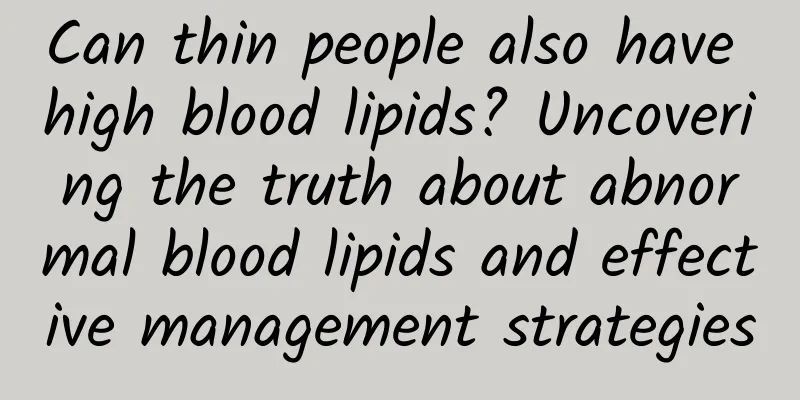Healthy diet and prostate cancer

|
Healthy diet and prostate cancer As the life expectancy of the Chinese population gradually increases and the prostate-specific antigen (PSA) screening becomes more popular in my country in recent years, the incidence of prostate cancer in my country has increased year by year. It has been determined that age and genetics are important factors in the occurrence of prostate cancer. So, is there any way to prevent the occurrence of prostate cancer? Many people would think of adjusting diet, strengthening exercise, etc. Is there really a connection between prostate cancer and eating habits? Studies have shown that the increasing incidence of prostate cancer in Asian countries is related to the westernization of lifestyle. Epidemiological surveys also show that when Asian people immigrate to the United States, their prostate cancer incidence rate will also increase significantly, approaching the incidence rate of American men. This suggests that exogenous factors such as environment and eating habits may affect the occurrence of prostate cancer. Currently, many studies have explored the relationship between various dietary habits and the occurrence and development of prostate cancer, but the research is still ongoing and the guidelines do not clearly recommend specific dietary measures to prevent the occurrence of prostate cancer. What dietary habits may be related to prostate cancer? Today we will introduce: 1. Alcohol: Heavy drinking is a risk factor for prostate cancer and is associated with prostate cancer mortality. This risk increases with increasing alcohol intake. 2. Dairy products There is a weak association between high intake of protein from dairy products and prostate cancer risk. 3. Fat No association was found between long-chain omega-3 polyunsaturated fatty acid intake and prostate cancer. A possible association was found between fried food consumption and prostate cancer risk. 4. Tomato (lycopene/carotene) Some studies have found that tomato (mainly cooked) and lycopene intake can reduce the incidence of prostate cancer. However, the evidence from randomized controlled studies with high evidence did not find that lycopene consumption was associated with a lower incidence of prostate cancer. 5. Meat No association was found between eating red or processed meat and prostate cancer. 6. Phytoestrogens The intake of phytoestrogens can significantly reduce the risk of prostate cancer. 7. Soybeans (Contains Phytoestrogens [Isoflavones/Coumarins]) Soy products contain phytoestrogens, which are analogs of estrogen in women. The total intake of soy foods will reduce the risk of prostate cancer, but on the other hand, it will also increase the risk of advanced prostate cancer. 8. Vitamin D There is a U-shaped curve relationship between vitamin D intake and prostate cancer. If the intake of vitamin D is too low or too high, it will increase the risk of prostate cancer, especially high-grade prostate cancer. 9. Vitamin E and Selenium The study found that nail selenium levels (reflecting long-term exposure) were negatively correlated with the occurrence of aggressive prostate cancer. However, supplementation with selenium and vitamin E did not change the incidence of prostate cancer. In other words, supplementation with selenium and vitamin E has no effect on preventing the occurrence of prostate cancer. 10. Green Tea In Asia, where prostate cancer is less common, green tea is consumed in relatively high amounts. Green tea contains antioxidants, which may prevent excessive proliferation of cancer cells and reduce the risk of tumors. Summarize Genetics is an important risk factor for the occurrence and development of prostate cancer, while exogenous factors (such as diet, medication, etc.) may have an important impact on this risk. However, there are currently no known effective preventive dietary interventions. Currently, the most effective way to reduce the risk of prostate cancer is early detection and early treatment. The guidelines also give clear indications for early prostate tumor marker (PSA) screening: 1. Male aged >50 years; 2. Men aged ≥45 years with a family history of prostate cancer; 3. Men aged over 40 years with baseline PSA greater than 1 ng/mL. Recommended Experts Liu Ming Director of Urology Department, Beijing Hospital, Chief Physician Professor of Peking University Health Science Center, PhD Supervisor of Peking University Health Science Center Doctoral Supervisor, Peking Union Medical College Standing Committee Member of the Urology Branch of the Chinese Medical Association Standing Committee Member and Secretary General of the Urology Branch of Beijing Medical Association Head of the Urology Science Popularization Professional Group of the Science Popularization Committee of the Chinese Medical Education Association Member of the Oncology Group, Basic Science Group, and International Exchange Committee of the Urology Branch of the Chinese Medical Association Deputy Director of the Minimally Invasive Surgery Group of the Urological and Male Reproductive Tumor Professional Committee of the Chinese Anti-Cancer Association NCCN Prostate Cancer Guidelines International Review Expert Deputy leader of the writing group of "Guidelines for the diagnosis and treatment of prostatic hyperplasia in China" Beijing Hospital Prostate Cancer MDT Joint Clinic Time: Every Thursday at 10:30 am Location: Room 24, Surgery Clinic, 5th Floor, Outpatient Building, Beijing Hospital Source: Department of Urology, Beijing Hospital |
<<: Learn more! What is the relationship between intravenous human immunoglobulin and vaccination?
>>: What is betaine? What are the effects of betaine?
Recommend
What is the nutritional value of egg fruit? What is the medicinal value of egg fruit?
The egg fruit is sweet and sour, and is a refresh...
How often is menstruation normal?
Menstruation comes once a month, but many women d...
Treatment of female genital warts
Genital warts are a sexually transmitted disease ...
I have been bleeding slightly after having the IUD inserted. What should I do?
Here I would like to remind all female friends th...
Why does a girl feel some pain in her chest?
Girls' breast development is very sensitive a...
Is drinking milk every day effective for breast enlargement?
Milk is a relatively common drink and contains a ...
Can women brush their teeth during confinement?
The traditional way of confinement is that you ca...
Why is my menstrual period always dirty?
When irregular menstruation occurs, the first rea...
How to eat rice cake and what is its meaning?
Rice cake is a traditional food of the Han Chines...
Can I have a physical examination during breastfeeding?
During breastfeeding, not only do you need to see...
Why do I often feel itchy around my breasts?
Breasts are a woman's private part. If the ar...
How to store and check whether the crabs delivered by express are alive?
We all know that crab is a popular delicacy in au...
What causes vaginal itching in young girls?
Although young girls basically do not have sex li...
Four steps in the abortion process
Many women are unwilling to face an unexpected pr...
During the post-anesthesia recovery period, these nursing measures are very important
The post-anesthesia recovery period, that is, the...









